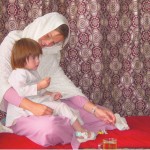By a divinely orchestrated “accident,” I found myself at The Church at Brook Hills in Birmingham this past Sunday morning.
At the beginning of the service, I was delighted to witness our new 36-year-old IMB president baptize his son Caleb. When Platt came to Brook Hills 8 years ago, it was just David and Heather. Now there are six Platts, two of whom were adopted – including Caleb, from Kazakstan. The emotional baptism was followed by David Platt’s last sermon as pastor of the church. The mutual affection between pastor and parish was palatable. The service concluded with the Brook Hills faith family commissioning David as President of Southern Baptists’ International Mission Board.

Back to the sermon – Platt began his message openly pondering – What do I preach today – on this last day as your pastor? Appropriately God led him to 1 Corinthians 15.
David began reading from the first verse.
Now I would remind you, brothers, of the gospel I preached to you.
Platt explained that in this chapter, Paul addressed three reasons to hold fast to the gospel with radical faith. It was not surprising that Platt’s final message and his passion for the author of that message would not vary at all from the messages that have resounded from Platt over the past eight years.
Platt explained: Casual, comfortable Christianity is not Christianity at all. This gospel changes the way we live.
And as he has done so often, Platt reminded the audience of the daunting global reality that stands in stark contrast from the gospel of light:
- a billion people in desperate spiritual need.
- 20,000 children will die of hunger-related disease – today!
- 4-5 billion people who “right now are on a road to an everlasting hell.”
- a couple of those billion “have never, ever heard the gospel.”
Platt’s voice raised and quivered as he challenged the audience: We Don’t Have Time To Play Games!
We have a mission that warrants radical urgency and my prayer (Brook Hills) is that you won’t forget that.
Don’t shrink back. Hold fast to this gospel with radical faith.
Some may say that David Platt is too young. Others might complain that he has never lived on an international mission field. How could he lead the International Mission Board?
So why is the most significant global force of missionaries finding such excitement at David’s appointment to the IMB? What is it about David that rivets thousands of young Christians, let alone young Southern Baptists?
A few of David’s characteristics were apparent on Sunday.
-
He is real and approachable. Few refer to David as Dr. David Platt, Brother Platt, Pastor Platt. Most just call him, “David” or simply “Platt.”
-
David’s every thought and fiber overflow with the gospel message that demands radical faith. You know where David is heading with his messages. Expect to hear the Great Commission and the Great Commandment.
-
David’s is neither a mindless nor a passionless message. In this Sunday’s message, like many of his books and sermons, Platt addressed a deeply theological and controversial issue – the reality of hell, the imminence of death, the historicity of Jesus’ resurrection and the consequences of choices made in this life.
Platt unfolded his theological argument asserting that the resurrection is real—
But if Jesus did not rise from the dead . . .
Then our faith is futile and we stand guilty of sin.
If Jesus did not rise from the dead . . .
Then our message is false and our mission is destructive.
If Jesus did not rise from the dead . . .
Then those who have died in Christ have been dammed before God.
And If Jesus did not rise from the dead . . .
Then radical, sacrificial, risk-taking faith is to be pitied in this world.
Obviously that is not where Platt’s message ended. His exegesis of the entire chapter led to his final, emotional charge to his beloved Brook Hills family.
I call you, Church at Brook Hills, to lead this church in such a way that it only makes sense that Christ has risen from the dead. Eight years ago, in His grace, God led me to Brook Hills. But in these last days, the King has made it clear that I have another battle to fight.
Regardless, let us hold fast to this gospel.
Platt concluded his message reading 1 Cor 15:58
. . . be steadfast, immovable, always abounding in the work of the Lord, knowing that in the Lord your labor is not in vain.
In response, the entire congregation joined together in a mass commissioning prayer for the Platt family.
Jim Shaddix, Pastor for Teaching and Training, challenged the Platts as follows.
“Time is short and the task is tall but God has equipped you. You have often quoted C.T. Studd who said, ‘I want to run a rescue shop within a yard of hell.’
David, now is your chance to go run a rescue shop and bring Southern Baptists with you.”
As is their weekly practice, David Platt, now the president of the IMB, concluded the service by leading the congregation in the recitation of the Great Commission. This was certainly a fitting end to one era and an appropriate beginning for the next.
David’s messages in this series are available at www.brookhills.org/media/series/for-the-love-of-god/



